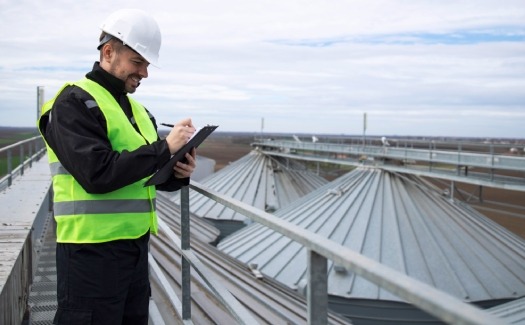
There is a particular responsibility to the environment in the urbanizing world, as increasingly scarce clean water and warming temperatures pose a rising challenge to basic habitability. So we are a purpose-led firm, embracing the challenge to alter the culture of development from doing well – to doing well, while doing well. Our sustainability professionals draw from a diverse range of planning, analysis, technology and public policy disciplines, to balance the economic and ecological considerations of development. Informed by research we improve the management of project life cycles – from project identification, site selection, feasibility, design and construction, to facilities management and commissioning.
-
ENVIRONMENTAL &
SUSTAINABILITY SERVICES -
Marine
ecology -
Ecological
restoration -
CORAL REEF
REGENERATION -
Mangrove
transplantation
Leaf Global Environmental Services uses a wide range of compliance monitoring and assessment techniques to characterize baseline environmental conditions of terrestrial and marine habitats, determine the sensitivity of resources within these habitats to various disturbances, and avoid or moderate potential damages associated with these disturbances.
Air Quality Monitoring
Noise and Vibration Monitoring
Marine Environmental Assessment
Hazardous material inspection
Environmental Impact Assessment Studies
Water & Sediment Quality analysis
Leaf Global Environmental Services applies its comprehensive understanding of marine ecology processes and engineering principles to develop measures and provide tailored services for the following elements.
- Coral reef transplantation & translocation
- Marine ecology surveys
- Sea grass meadows translocation
- Benthic habitat mapping
- Marine turtle surveys
- Hydrodynamic modeling
- Sediment plume modeling
- Brine discharge modeling
- Artificial coral reef development & regeneration
Leaf Global Environmental Services designs and implements sustainable remediation and rehabilitation strategies to restore ecological functions to disturbed ecosystems. This is achieved by performing the following.
- Transplantation of hydro-halophytes (Avicennia marina & Halocnemum strobilaceum)
- Re-contouring salt marsh surface topography
- Restoration of tidal channels morphometry
- Construction of tidal channel networks
A lot of effort has been put into the reinstatement of the Kingdom’s reefs. Leaf Global Environmental Services (LES) is a leading pioneer in this field and has completed several prestigious schemes over the past couple of years. Leaf Global took the initiative to aid the conservation and natural resource management effort by developing pioneering artificial reef modules, namely The Eden Reef Block and the Reef Regeneration Basket.
The Reef Regeneration Basket is uniquely designed to be easy to manufacture, transport and deploy. It is also customized to suit site specific requirements and carefully placed on the seabed without anchoring. Thus, enabling easy coral growth monitoring, developing epibiotic communities, and improving water quality while providing an platform for coral transplantation The Eden Reef Block design is the result of Leaf Global’s extensive research and testing in the field of coral reef restoration in and around the Gulf region.
LGES’s patented design has been proven to greatly increase marine habitat populations, mitigating damage to natural reefs caused by over fishing, pollution & other human activities and regenerate reef areas that have been degraded due to marine development and various point and non-point sources of pollution.
The unique design allows for the reef blocks to be aligned in different arrangements so as to create interconnecting holes, provide habitats for fish and to suit site specific requirements.
The blocks can be deployed either individually or stacked together to form artificial reefs of limitless sizes.
Mangrove plants are salt tolerant species of woody plants that grow in the intertidal zone of the Kingdom’s coast. Replanting mangroves is widely done across the globe, usually as a means of increasing coastal protection or of regenerating mangrove areas that have been destroyed as a result of deforestation, land reclamation, pollution & manmade activities.
The Kingdom had experienced significant shoreline industrialisation over the years (power plants, desalination plants, Wastewater Treatment Works etc.).
NCEC and Saudi Aramco have a very strong stance against the destruction of the mangrove forests and is taking all necessary steps to enforce offset programs to counteract this. A replacement program based on a “like for like basis” (for every plant misplaced or destroyed, an equal amount is to be planted) is the most common required term found in any new Environmental Construction Permit issued where Mangrove deforestation is expected. We have a fully serviced mangrove nursery with an initial capacity of 4,000,000 plants.
We maintain the saplings all year round (Until their transplanting) in the facility under simulated conditions so that they develop a well-established root system that provides them with high survival rates when compared to the direct in-situ dibbling of seeds/propagules.
FUNCTIONS OF MANGROVE- Coastal protection: Mangroves act as a natural barrier against storms, waves, and erosion. Their dense root systems hold the soil together and dissipate wave energy.
- Habitat provision: Mangroves provide a critical habitat for a wide variety of marine life, including fish, shrimp, crabs, and birds. They serve as nursery grounds for many commercially important fish species.
- Water filtration: Mangroves help to filter pollutants and sediments from water before it reaches the ocean. This helps to improve water quality for marine life and humans.
- Climate change mitigation: Mangroves store large amounts of carbon dioxide in their biomass and soils. This helps to mitigate the effects of climate change.
- Biodiversity support: Mangroves are home to a rich diversity of plant and animal life. They play an important role in maintaining healthy ecosystems.
